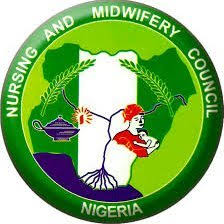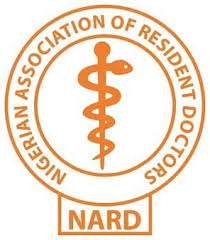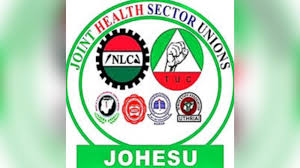COMMUNIQUE ISSUED AT THE END OF A ONE DAY STRATEGIC STAKEHOLDERS ENGAGEMENT WITH HEALTH MAINTENANCE ORGANIZATIONS (HMOS) UNDER THE NATIONAL HEALTH INSURANCE SCHEME (NHIS) HELD AT CHIDA INTERNATIONAL HOTEL, UTAKO, ABUJA ON THURSDAY, SEPTEMBER 19, 2019.
INTRODUCTION
In the pursuit of its rebranding agenda, the National Health Insurance Scheme (NHIS) organized a one-day National Strategic Stakeholders Engagement for Health Maintenance Organization (HMOs). The main objectives of the meeting include unveiling the reforms of the new-result oriented NHIS, reviewing the roles and responsibilities of the HMOs, identifying gaps/challenges of NHIS-accredited HMOs, and proposing solutions in the implementation of the Health Insurance programmes. The Executive Secretary/CEO of the NHIS, Professor Mohammed Nasir Sambo, in his welcome address, promised that the resolutions arising from the activity will be vigorously implemented. Goodwill messages were received from Dr. Tunde Oladele, Chairman, Health and Managed Care Association of Nigeria (HMCAN); Dr. Benedict Okpala, President, Association of Health Insurance Practitioners of Nigeria; and Dr. Kayode Obembe. The engagement was attended by Ninety-Five (95) participants from Fifty-Four (54) Health Maintenance Organizations across the nation.
The event was officially declared open by the Honourable Minister of Health, Dr. Osagie Emmanuel Ehanire, ably represented by Dr. Omale Amedu, mni, Director Hospital Services, Federal Ministry of Health. In the address, he urged participants to engage in frank conversations to ensure that the reforms in NHIS achieve its objectives. All stakeholders were enjoined to review their business processes, operate within the Guidelines, and ensure that economic interest does not submerge enrollee satisfaction and the desire for a healthy Nigeria.

TECHNICAL SESSIONS
The technical sessions comprised of a presentation on the Changing Landscape of the NHIS by the Executive Secretary/CEO, and Group work by all participants which focused on issues relating to
(i) HMOs and Health Care Providers (HCPs), (ii) HMOs and Enrollees (iii) HMOs and HMOs (iv) HMOs and NHIS. The changing landscape deals with the transition from the old to the new NHIS, and it is built on a 3-point rebranding agenda namely: Value System Reorientation, Transparency and Accountability, and Accelerating the drive towards the achievement of Universal Health Coverage. The challenges identified by the various groups include: late submission and reconciliation of bills, tariff issues, misapplication/abuse of authorization codes, failure of regulation, inadequate information on the rights and obligations of stakeholders, poor understanding of the health insurance ecosystem and operations, inappropriate/fraudulent practices, poor ICT infrastructure across board, adverse selection with respect to Voluntary Contributors Social Health Insurance Programme (VCSH IP), unfair competition, payments of capitation and Fee For Service (FFS) in arrears, issues around Advance Payment Guarantee Bond and Fidelity Guarantee Bond. RESOLUTIONS At the end of the engagement, the following resolutions were adaptable:
- Review of NHIS Operational Guidelines and inclusion of a Code of Conduct for HMOs, to conform with current realities and ensure compliance by all stakeholders.
- Appropriate systems of rewards and sanctions in line with Operational Guidelines and other extant regulations should be activated to serve as motivation and deterrence.
- Urgent review of tariffs and rates in view of economic realities, payment modalities for capitation and FFS.
- Ensure prompt submission of bills by HCPs and payment by HMOs.
- The deployment of appropriate Information and Communication Technology (ICT) infrastructure that allows for effective interface among all stakeholders.
- Regular enlightenment and awareness activities, including stakeholder engagements should be embarked upon to deepen understanding of the health insurance ecosystem.
- Harmonization, coordination and monitoring of State Social Health Insurance Agencies, to guarantee efficiency and productivity.
- Setting up benchmarks of tariff for Providers and HMOs products and pricing.
- Release of the report of the last reaccreditation exercise and review of validity period of accreditation.
- Review of the NHIS Act to make Health Insurance mandatory for all Nigerians.
CONCLUSION
The participants commended the resolve of the Executive Secretary and the leadership of the Scheme to make the NHIS a result-oriented organization. It is expected that these recommendations will be given prompt attention, in order to improve service delivery and guarantee healthy competition.
Signed:
Dr. Korie Patrick C.
SUNU HMO (former managed Healthcare services ltd)
Mr. Shuaibu Ahmed Indabawa
DGM/ZC, North West Z ‘B’, NHIS




